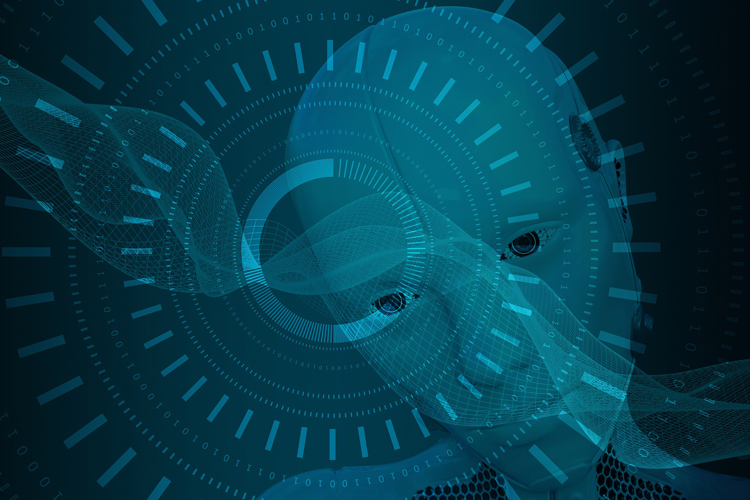Artificial intelligence (AI) is becoming more sophisticated at doing what humans do, but more efficiently, quickly, and cheaply.
As such, AI has significantly impacted many industries, particularly healthcare, where it is most needed. This trending technology, which was once only a sci-fi dream, is no longer so. Rather, this evolving technology has permeated our daily lives in ways our ancestors could never have predicted.
AI in the healthcare industry is radically altering the IT landscape. But what are the pros and cons of AI in healthcare?
This article on AI in healthcare discusses various uses of artificial intelligence in this industry. So, let us learn more about this technology and its potential for human well-being.
What Is Artificial Intelligence In Healthcare?
The programs of machine learning (ML) algorithms and other cognitive technologies in medical settings are referred to as Artificial Intelligence in healthcare.
In its most basic form, AI occurs when computers and other machines mimic human cognition and are capable of learning, thinking, and making decisions or taking actions on their own.
AI in healthcare is all about using machines to analyze and act on medical data, usually to predict a specific outcome.
AI has several advantages over traditional methods of analytics and clinical decision-making. AI algorithms improve system precision by allowing them to understand training data, allowing humans to gain unprecedented insights into treatment variability, care processes, diagnostics, and patient outcomes.
Role of AI in Healthcare
AI is being used to deploy efficient and precise inventions that will help care for patients suffering from chronic diseases, such as cancer, and hopefully find a cure for them.
AI has several advantages over traditional methods of analytics and clinical decision-making.
AI algorithms improve system precision by allowing them to understand training data, allowing humans to gain unprecedented insights into treatment variability, care processes, diagnostics, and patient outcomes.
Let’s dive into the roles of AI in healthcare.
Artificial Intelligence Helps Doctors In Surgeries
Whether in a hospital or a single clinic, healthcare operations remain a complex and multifaceted set of processes. Data is constantly flowing both inward and outward for healthcare operations, from internal operations like HR to dealing with insurance claims to receiving patient data from other providers.
With artificial intelligence, medical teams can automatically generate updates, analyses, and reports, saving them time while also highlighting preventative care issues to discuss with patients during their appointments. This allows for a more proactive and thorough approach to healthcare while also reducing staff workload.
Artificial Intelligence in Healthcare Finance
Healthcare finances extend beyond the typical requirements of a business. With regulatory requirements, patient confidentiality, and various insurances, moving to a unified cloud-based system is a step toward significantly reducing churn while improving accuracy. Things can become even more streamlined when these cloud applications incorporate artificial intelligence.
A healthcare organization can benefit from using artificial intelligence for financial needs and operations in the following ways:
• Root cause analysis of both sudden and gradual problems
• Predictive analytics on organizational trends that affect the bottom line
• Modeling to improve processes, resources, and supply chain requirements
• Recognizing and automating repetitive tasks to improve process efficiency
Artificial Intelligence in Healthcare Data Management
Resource management has always been an important part of any healthcare organization. This was never more evident than during the COVID-19 era when resource usage and availability were tested to their limits.
Resources ranged from personnel and vaccines to tools and supplies for these instances. Moving this data to the cloud was a significant step forward for the industry, as it created a single consolidated source of truth for decision-making.
Implementing artificial intelligence, on the other hand, has proven to be equally important.
The application of artificial intelligence and machine learning in healthcare has resulted in a number of data management advantages. By applying these tools to real-time data, reports and metrics on resource usage can be generated automatically, significantly reducing process and reaction time. Predictive modeling on both the micro and macro scales also ensures a better resource balance and identifies situations and seasons when organizations need to scale up.
Organizations can plan ahead with data-driven predictive modeling, ensuring that their communities receive better care.
The Difficulties of Using AI in Healthcare
Adopting healthcare AI presents challenges, such as meeting regulatory requirements and overcoming trust issues with machine learning results.
Despite these challenges, introducing AI and machine learning to the healthcare industry has resulted in numerous benefits for healthcare organizations and their patients.
AI enhances operations by streamlining workflows, assisting with mundane tasks, and assisting users in quickly finding answers to pressing questions, resulting in better experiences for patients, members, citizens, and consumers.
AI in healthcare was once only a sci-fi dream that we started living right now.
However, we are just at the beginning of this era, and we can only imagine and try
to predict how artificial intelligence will improve our well-being in the short and far
future.




